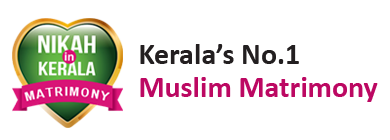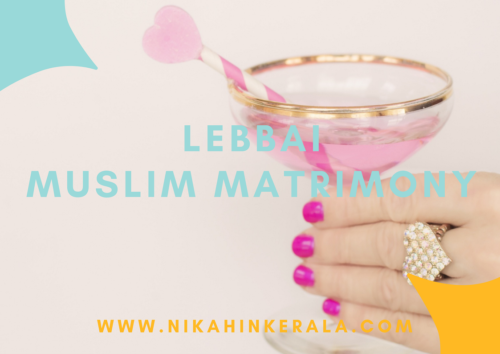Islam, which was adapted to local culture had a firm footing on the land of Tamils with a coalition of respective inherent cultures, ethnicities, and linguistic variations. The commercial spread of Arabs has indisputably aided in the establishment of many communities of the Tamil Muslims. Marakkayar, Labbai, Rawthar etc are the prominent Muslim populations descended from Arabs, whereas the Deccani are of the Turkish or Mangoloid lineage. They all are orthodox Sunnites who follow the Hanafi School of Islam and are presently the members of the minority Muslim population. They’re regarded and declared as an educationally backward sect in Tamil Nadu. A Muslim trading community known as Lebbai Muslims (Labbai Labbay, Labbai, Labba, Labbabeen, Lebbay) is found throughout the southern states of India are one among the four sects of Tamil Muslim communities in Tamil Nadu. While they are inclined with the respective mannerisms and customs like dress, food, festivities, practices, etc. of Islam, they are widely or too close to the local ethos. Lebbai Muslim matrimony, which is sanctified through the virtuous religious wedding planners or litanies is supposed to have descended from traders who began Persian Gulf and Arabian Peninsula over diverse relationships with the resident Tamil, Malayali, and Kannadiga populations as well as numerous followers from the Southern states of India.
As we explore the cultural account of Lebbai Muslims and settlement in Tamil Nadu, the Labbais or the Lebbai Muslims few speculations have been recorded. In line with the renowned historian Mark Wilks, the Lebbai Muslims are descended of the group of people who were forced into exile by the governor of Iraq, Hijaj Ben Gustaff in the early eighth century. Some people migrated to the east of Cape Comorin while others, including Muslims moved to India’s western coast. Another speculation states that the Lebbai Muslims in India are of Arab origin. Some of them later engaged themselves in agriculture and other occupations like weaving, mat making (sedge) etc. The Arab merchants or traders who had landed in the coastal area or the ports in Tamil Nadu in the eleventh and twelfth century had brought along some Arabs to assist them. These Arab helpers or immigrants who intermarried with locals used to respond to the calls of their masters with the word Labbaik which means “Here I Am” and is used as a title for Tamil speaking Muslims who are converted to Islam. (The term Labbai is also used to refer the Hindus converts to Islam.) Muslims and their offsprings came to be known as Labbais or Lebbai Muslims. The occupation of ancient Lebbai Muslim Matrimony prospects was mainly trading, business, and aids to commerce. The Labbais largely own the tanning industry in the former North Arcot and current Vellore Districts, effectively shattering the Chalkies’ monopoly. A small group of Labbais speak Tamil, however the rest use Urdu dialects, though they do not recognise it as the main language.
The former editor of the Journal of the Royal Anthropological Institute Susan Bayly is of the opinion that Labbai became the word for the whole Tamil Muslims in the south. She claims that all Lebbai Muslims in Tamil Nadu are Sunnis, including coastal fisherman and pearl divers along with several cultivators, weavers, other artisans, and sundry dealers who are employed in selling seafoods and leather making. In earlier days the Lebbai Muslim sect were few, ill-treated and were under the control of other Muslims and Hindus. The conventional group of Lebbais and their offspring would cry loudly “Labbaik” meaning “we are your servants” with the intention to seek attention. The term Labbai appears to be of recent origin, for, in the Tamil lexicons, this caste is usually known as Sonagan, i.e., a native of Sonagam (Arabia), and this name is common at the present day. Consistent with the census report of 1881, the Labbais or Lebbai Muslims are known as Coromandel Moplas, with a slight admixture of Arab blood and native converts, they are thrifty, industrious, and enterprising, plucky mariners, and expert traders. They emigrate to the Straits Settlements and Burma without restriction”. In the Census Report, 1891, they are described as “a mixed class of Muhammadans, consisting partly of compulsory converts to Islam made by the early Muhammadan invaders and Tippu Sultan”.
The families of Lebbai Muslims are religious people and demonstrate an orthodox way of living. The Lebbai Muslim men and their children go to the mosques to pray, while women stay at home to pray. They endeavour to raise the Lebbai Muslim girls and boys to live in an Islamic way of life. They do not promote marriage with other sects of Muslim but promote intermarriages of Lebbai Muslim groom or brides solely based on Islamic principles to sustain the marital lineage. Distinct people from other religious beliefs, they do not encourage marriage of Lebbai Muslim girls before attaining the age of puberty. They exercise the Islamic ritual except in some areas where they have adopted a Hindu wedding ceremony. Additionally, we can see the practice of marrying of Lebbai Muslim boys of marriageable age close family connections. Muslim matrimony with a mother's brother's daughter is the carried only if the bride is the right age. Marriages among kith and kin are common in Lebbai Muslim community as they believe that these wedding practices hold together the ties between families, but no marriage occurs with parallel cousins. Along with connecting Muslim marriage bureaus or religious wedding planners, older members of families would visit their adjacent families or organise get together functions with the sole aim of searching eligible prospects for their children. With the advent of internet and digital amenities, families of Lebbai Muslims along with marriage bureaus, register a Muslim matrimony profile with the right Muslim matrimonial sites to look for potential match of Lebbai Muslims straight away. Most wedding service portals give us a super easy way to stay connected with the gadget friendly apps on the go. It’s quick, simple, and indeed a time saver.
Download Lebbai Muslim Matrimony Free Apps
- BEST LEBBAI MATCHMAKING SERVICE IN KERALA
- BEST PROFILES OF LEBBAI BRIDES AND GROOMS
- BRIDES & GROOMS ON LEBBAI MUSLIM MATRIMONY
- BRIDES FROM LEBBAI COMMUNITY
- FREE MUSLIM LEBBAI MATRIMONIALS SITE FOR INDIANS
- FREE MUSLIM LEBBAI MATRIMONIALS SITE FOR NRI MUSLIM LEBBAI MARRIAGE
- JAMAAT-E-ISLAMI MUSLIM BRIDES & GROOMS FOR MATRIMONY IN HYDERABAD
- KERALA MARRIAGE
- kerala matrimonials
- kerala matrimony
- KERALA MUSLIM LEBBAI MATRIMONY
- LEBBAI BRIDES AND GROOMS MATRIMONIAL PROFILE FOR MARRIAGE
- LEBBAI BRIDES AND LEBBAI GROOMS
- LEBBAI BRIDES LEBBAI GROOMS MATRIMONY
- LEBBAI DIVORCEE MUSLIM BRIDES’ PROFILES
- LEBBAI MARRIAGE
- LEBBAI MATRIMONIAL SERVICES
- LEBBAI MATRIMONY
- LEBBAI MATRIMONY BRIDES & GROOMS ON MUSLIM MATRIMONY
- LEBBAI MATRIMONY SERVICES
- LEBBAI MUSLIM MATCHMAKING GROOMS
- LEBBAI MUSLIM MATRIMONIAL
- LEBBAI MUSLIM MATRIMONIAL PAGE
- LEBBAI MUSLIM MATRIMONY
- LEBBAI MUSLIM MATRIMONY BRIDE PROFILES
- LEBBAI MUSLIM MATRIMONY GROOM PROFILES
- LEBBAI SINGLE MUSLIM BRIDES
- LEBBAI TAMIL MUSLIM MATRIMONY GIRLS FOR MARRIAGE
- LEBBAI TAMIL MUSLIM MATRIMONY GROOM
- LEBBAI UNMARRIED MATRIMONY BRIDES & GROOMS
- LEBBAI WEDDING
- MARRIAGE LEBBAI MATRIMONY
- MUSLIM LEBBAI BRIDES
- MUSLIM LEBBAI BRIDES/GROOMS FOR MATRIMONY
- MUSLIM LEBBAI GIRLS
- MUSLIM LEBBAI MARRIAGE PROFILES
- MUSLIM LEBBAI MATCHMAKING SERVICE
- MUSLIM LEBBAI MATRIMONIAL
- MUSLIM LEBBAI MATRIMONY
- MUSLIM LEBBAI MATRIMONY SITE
- NO 1 LEBBAI MUSLIM MATCHMAKING SITE
- NO 1 LEBBAI MUSLIM MATRIMONY SITE
- NO 1 MUSLIM MATRIMONY SITE
- ONLINE MUSLIM LEBBAI MATRIMONIAL WEBSITE
- SAUDI ARABIA LEBBAI MATRIMONY BRIDES & GROOMS ON MUSLIM MATRIMONY
- SEARCH MUSLIM LEBBAI MATRIMONY
- TAMIL MUSLIM LEBBAI MATRIMONY LEBBAI MUSLIM MATRIMONIAL
- TAMIL MUSLIM MATRIMONIALS
- THABLEEGH MATRIMONY BRIDES & GROOMS ON MUSLIM MATRIMONY
- UNITED KINGDOM LEBBAI MATRIMONY






